- Details
- Hits: 5288
Station: Ishpeming, MI
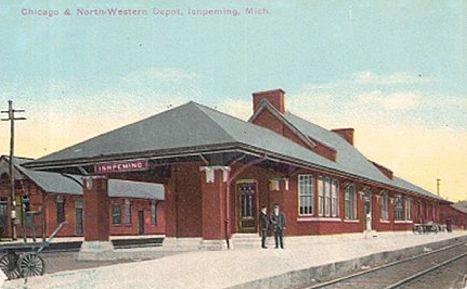
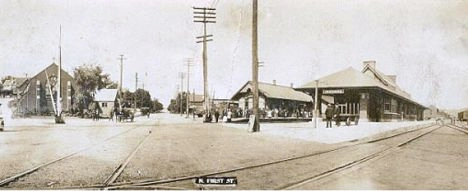
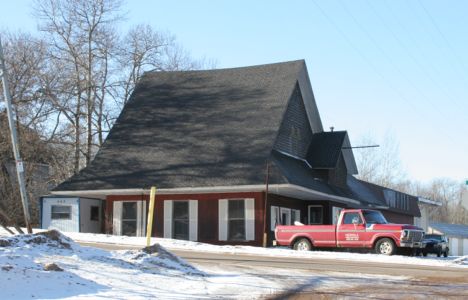
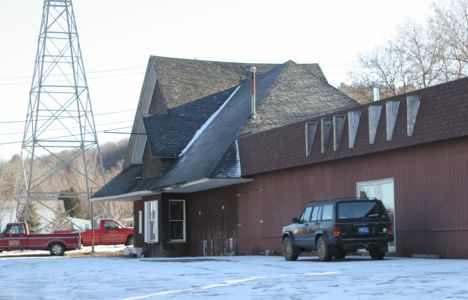
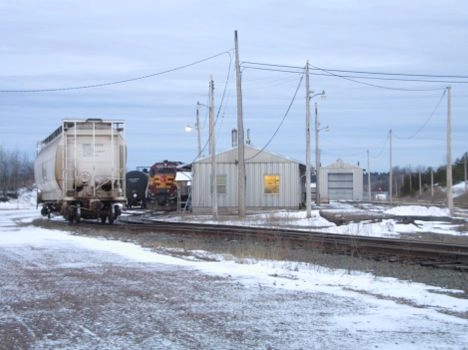
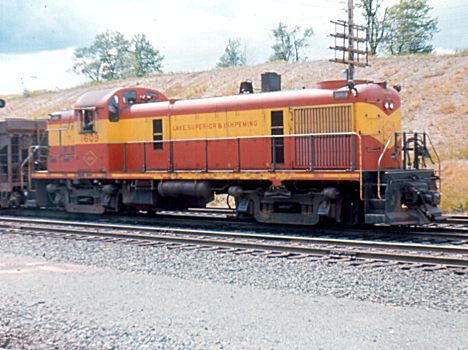 Ishpeming was settled about 1856 in Marquette County around the Lake Superior Mine. The Cleveland Mine (later the Iron Cliffs Company) established other mines here very early on. The town became a village in 1871 and a city in 1873. [MPN]
Ishpeming was settled about 1856 in Marquette County around the Lake Superior Mine. The Cleveland Mine (later the Iron Cliffs Company) established other mines here very early on. The town became a village in 1871 and a city in 1873. [MPN]
Ishpeming, along with Negaunee, became the central focal point for the Marquette iron range with over one hundred mines being located within 10 miles of this location in all directions.
Ishpeming was served by the DSS&A, the C&NW and later the LS&I. The C&NW depot was located downtown along what is now Hematite Drive. Originally, the DSS&A depot was in the south end of town near the Cleveland Mine. A competing line, the Marquette & Western (M&W) built a line west to Ishpeming and located their depot near the C&NW depot. About a year later the M&W was purchased by the DSS&A and the passenger operations of both roads were moved to the centrally located M&W depot which was across the tracks from the C&NW depot.
The LS&I railroad (which was built in the 1890’s by the Cleveland Cliffs Iron Co. and the Lake Superior Iron Company) entered Ishpeming through the south side of town and located their depot near Johnson and Pine streets. That depot still exists.
Notes
In the final years of passenger trains in northern Michigan, the routes through the middle of Ishpeming were abandoned in favor of a new route on the northern edge of town, near US-41. The remaining passenger operations were served by a small industrial looking depot near Lake Shore Drive and US-41..
The LS&I's passenger trains were really "commuter" trains serving Ishpeming, Negaunee, and Marquette. Long distance trains from the cities of Detroit, Milwaukee or Chicago came via the C&NW, DSS&A and Milwaukee Road (the latter via trackage rights from Champion) and used the central depots in town.
Photo Info: Top, the Chicago & North Western depot in downtown Ishpeming in the early 1900's. 2nd photo, Ishpeming's two downtown depots. Note the interurban crossing to the left. [Alan Loftis collection]. 3rd and 4th photos, the Lake Superior & Ishpeming railroad depot on the south side of town. [Dale Berry]. 5th photo, a 2002 photo of CN's nearby yard at Ishpeming. [Dale Berry]. 6th photo, a 1966 photo of a LS&I Alco unit switching ore cars near Euclid Yard in Ishpeming. [Bill Moore]
The LS&I station in Ishpeming was built in 1898 at Johnson and Lake Streets. It remained in service until 1964. It is a frame structure 24' wide by 51' long with a sharply hipped room and eaves overhanging 6' on all sides. There was a passenger platform on the north façade 13' by 138'. The interior of the station was divided into three main segments: the ticket office (9'x25'), the men's waiting room (20'x24') and the women's waiting room (also 20'x24'). The building continues to exist as a private business in 2016 but has an addition built onto it. [UPM]
The C&NW had a coal shed plus a bucket-type coaling station (30 tons per hour) with a capacity of 100 tons which was built in 1910. They had a sand bin, two water towers (one a 24' wide tower and a second 18' water tower on 20' supports). [CNWV]
Time Line
1896. October. The Superior Iron Co. at Ishpeming has begun to remove 22 dwellings from the territory over which the LS&I railway will be extended. [YEX-1896-1009]
1898. The LS&I will erect a new depot at Ishpeming. [UVC-1898-0520]
1906. The C&NW builds a new station at Ishpeming west of Second street. [CNWV]
1918. The DSS&A had operator/telegraphers at their station here around the clock. The C&NW also had an agent operator here around the clock. [TRT]
1918. The C&NW installs a new 80 foot turntable in Ishpeming, at their 6-track engine house. [CNWV]
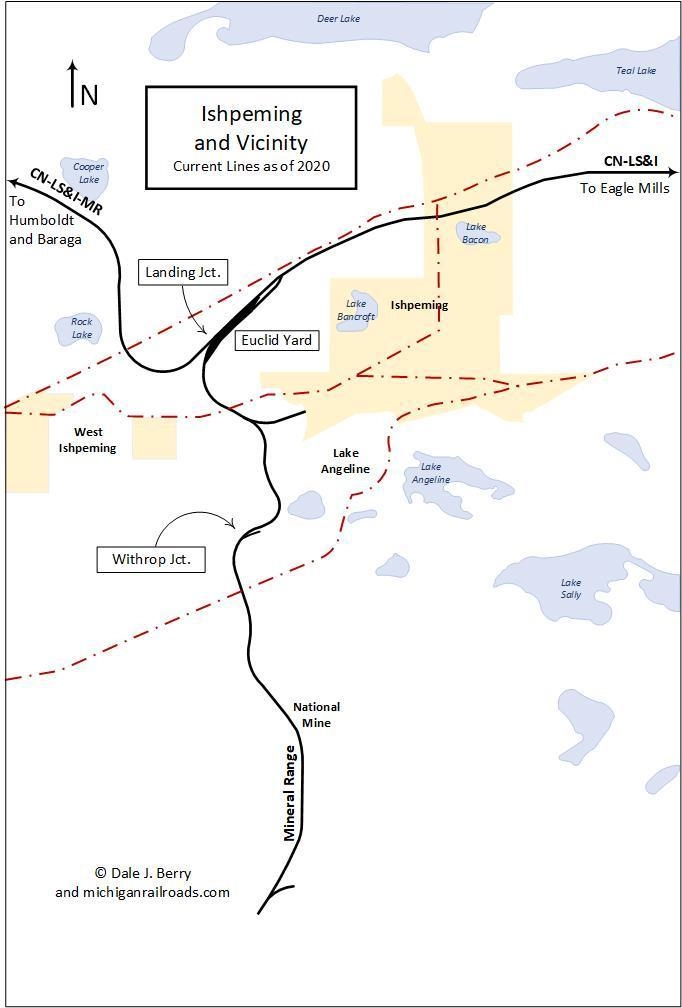
Bibliography
The following sources are utilized in this website. [SOURCE-YEAR-MMDD-PG]:
- [AAB| = All Aboard!, by Willis Dunbar, Eerdmans Publishing, Grand Rapids ©1969.
- [AAN] = Alpena Argus newspaper.
- [AARQJ] = American Association of Railroads Quiz Jr. pamphlet. © 1956
- [AATHA] = Ann Arbor Railroad Technical and Historical Association newsletter "The Double A"
- [AB] = Information provided at Michigan History Conference from Andrew Bailey, Port Huron, MI

